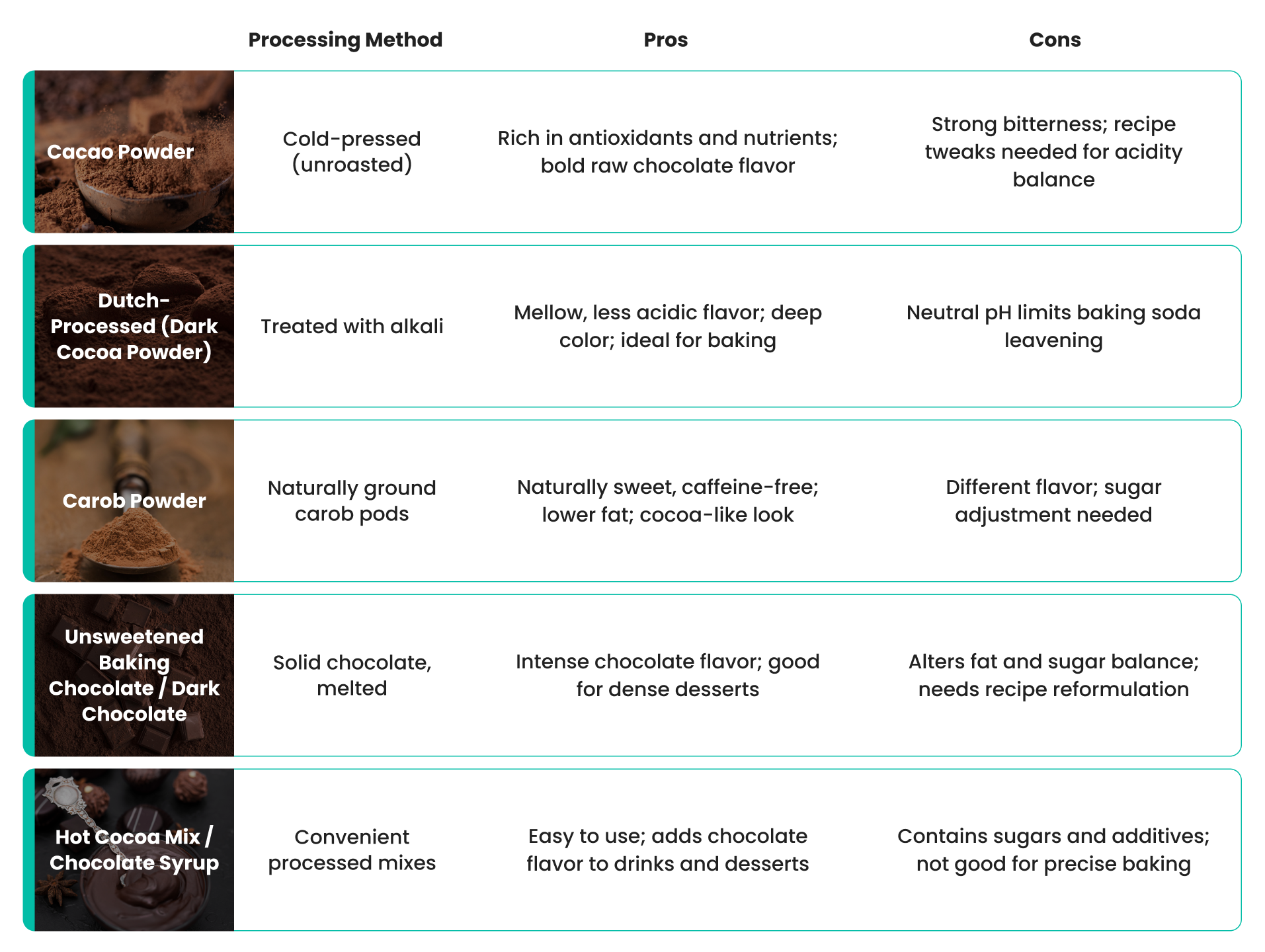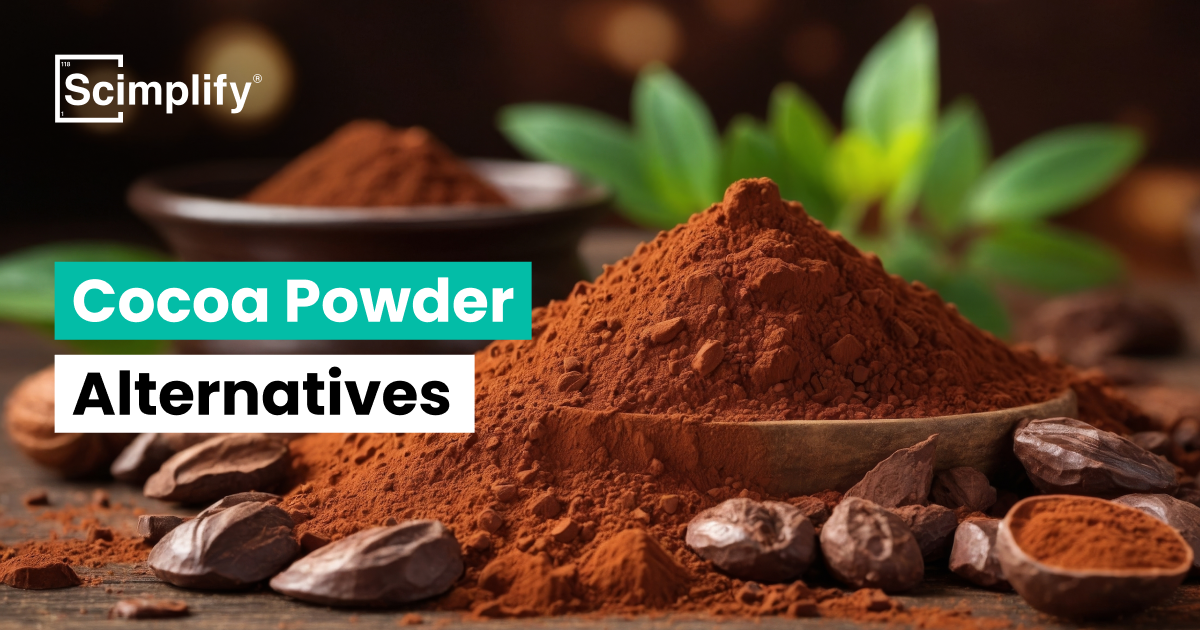Cocoa powder is the dry, powdered, remaining part of cocoa beans, roasted and solid extract of cocoa beans, left after removing cocoa butter. It is a typical ingredient in baking, confectionery, beverages, and nutraceuticals, known for its rich chocolate flavor, deep color, and antioxidant properties. Its demand cuts across industries in the form of unsweetened cocoa powder used in cakes and dark cocoa powder used in desserts, as well as large quantities of cocoa powder used in large-scale production.
Nevertheless, the increasing cost, supply variability, and dietary limitations have given rise to interest in cocoa powder alternatives. These alternatives will focus on replicating the taste, functionality, and look of cocoa and provide alternatives to recipes and formulas.
Get a sample of premium-grade cocoa powder now!
Alternatives to Cocoa Powder
1.Cacao Powder
Cacao powder is cold-pressed using unroasted beans, and thus it contains more nutrients than processed cocoa.
- Pros:
- High in nutrients and antioxidants, like high-flavonol cocoa powder, it has benefits.
- Offers bold, raw chocolate flavor.
- Popular in health-conscious diets and smoothies.
- Cons:
- More bitter and acidic than regular cocoa.
- May need recipe adjustments.
2.Dutch-Processed (Dark Cocoa Powder)
Treated with alkali to reduce acidity, giving a smoother flavor and a darker color.
- Pros:
- Provides a mellow taste and deep color.
- Common in premium desserts and cocoa powder for cooking.
- Works well for confectionery and beverages.
- Cons:
- Neutral pH limits leavening in some recipes.

3.Carob Powder
Made from carob pods, naturally caffeine-free and sweeter than cocoa.
- Pros:
- Great for stimulant-free diets or cocoa allergies.
- Lower fat content compared to raw cocoa butter.
- Close in appearance to cocoa.
- Cons:
- Distinct earthy taste, not identical to chocolate.
- May require sugar adjustments.
4.Unsweetened Baking Chocolate / Dark Chocolate
Melted bars or chips can replace unsweetened cocoa powder.
- Pros:
- Strong, authentic chocolate taste.
- Perfect for brownies, ganache, and rich desserts.
- Cons:
- Alters fat balance due to cocoa butter.
- Sugar levels must be adjusted.
5.Hot Cocoa Mix / Chocolate Syrup
A last-resort substitute, mostly for beverages and simple desserts.
- Pros:
- Convenient and widely available.
- Adds chocolate flavor to drinks.
- Cons:
- Contains sugar, dairy, and additives.
- Not suitable for precise baking.
Conclusion
There are recipes that require only cocoa powder and cannot be substituted with any of the alternatives. When considering cocoa powder substitutes for factors such as cost, supply availability, or dietary restrictions, there are several options, such as cacao powder, carob powder, dark cocoa powder, and unsweetened chocolate. A few health-conscious applications also use high-flavonol cocoa powder to give the antioxidant effect, and carob also finds a niche in the non-stimulant diet. Within the business environment, bulk cocoa powder is indispensable, whereas alternatives such as Dutch-processed or carob make it versatile.
When it comes to using cocoa powder in baking, beverages, or skincare nutraceuticals, or cocoa butter-based products, understanding which alternative is the right one will allow preserving the quality of the product without losing the expectations of the consumers.


